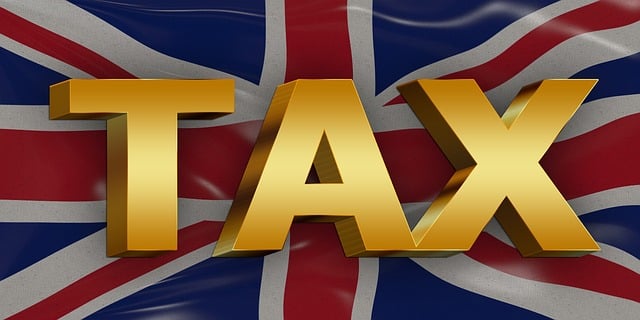As the year comes to a close, businesses are urged to look beyond the clock and focus on strategic year-end tax planning. By implementing thoughtful corporate tax planning strategies, businesses can secure substantial savings and gain better financial clarity. This article guides entrepreneurs through essential practices like maximizing tax deductions, utilizing tax-deferred investments, and planning for retirement—all designed to minimize taxes and ensure a stress-free tax season. Discover how proactive year-end tax planning offers peace of mind and significant financial advantages.
- Year-End Tax Planning: Strategize for Substantial Savings
- Maximizing Tax Deductions: Tips for Entrepreneurs
- Tax-Deferred Investments & Retirement Planning: Long-Term Tax Minimization Techniques
Year-End Tax Planning: Strategize for Substantial Savings

As the year comes to a close, businesses have a unique opportunity to strategize and plan for significant savings through year-end tax planning. Entrepreneurs can leverage various tax benefits designed to encourage investment and growth. One effective technique is deferring income to the new year, which allows businesses to delay taxable income and potentially reduce their overall tax liability. Additionally, accelerating expenses can be a powerful strategy; by recognizing expenses in the current tax year, businesses may lower their taxable income, resulting in substantial savings.
Maximizing tax deductions and investing in tax-deferred assets are further essential components of effective year-end tax planning. Entrepreneurs should carefully review all eligible deductions, from business-related expenses to retirement contributions. Tax-deferred investments, such as 401(k) plans or IRAs, offer the advantage of deferring taxes on investment gains until withdrawal, thereby reducing the overall tax burden. This proactive approach ensures not only financial clarity but also prepares businesses for a smoother tax season and long-term retirement planning.
Maximizing Tax Deductions: Tips for Entrepreneurs

Entrepreneurs have a unique opportunity to take advantage of year-end tax planning strategies that can significantly impact their financial situation. One of the most effective ways to minimize tax liabilities is by maximizing tax deductions. This involves carefully reviewing business expenses and ensuring all eligible costs are accounted for. Entrepreneurs should consider accelerating expenses, such as equipment purchases or business-related travel costs, which can lower taxable income for the current year. Additionally, maximizing contributions to retirement accounts like 401(k)s or IRAs can provide substantial tax benefits for entrepreneurs.
By strategically planning and timing these deductions, business owners can reduce their tax burden and create a more stable financial future. Tax-deferred investments offer an attractive way to grow wealth while minimizing the impact of taxes. Consulting with a financial advisor or tax professional is advisable to uncover personalized retirement tax planning strategies that align with individual goals, ensuring the maximum take-home pay and long-term financial security.
Tax-Deferred Investments & Retirement Planning: Long-Term Tax Minimization Techniques

For entrepreneurs and business owners, year-end tax planning presents an opportunity to implement long-term tax minimization techniques. One effective strategy is to take advantage of tax-deferred investments. By deferring taxes on certain types of income or assets, individuals can reduce their taxable income for the current year, potentially lowering their overall tax burden. This is particularly beneficial for those looking to save for retirement. Retirement planning not only secures an individual’s financial future but also offers substantial tax benefits. Contributions to retirement accounts like 401(k)s or IRAs can be tax-deductible, further reducing taxable income.
Additionally, the growth of these investments is often tax-deferred, allowing them to compound over time without annual tax implications. This approach ensures that individuals can minimize their tax liability while simultaneously planning for retirement. Maximizing tax deductions and employing tax-deferred investments are powerful tools in the arsenal of any savvy entrepreneur looking to navigate year-end tax planning with success.
Year-end tax planning is not just an option; it’s a strategic necessity for businesses and entrepreneurs. By implementing tax benefits for entrepreneurs like maximizing tax deductions, deferring income, and investing in tax-deferred assets, businesses can significantly reduce their tax burden and foster better financial health. These year-end tax planning strategies, coupled with retirement tax planning, offer powerful long-term tax minimization techniques that ensure a smoother, less stressful tax season. Prioritize these tactics now to gain peace of mind and avoid costly surprises.



